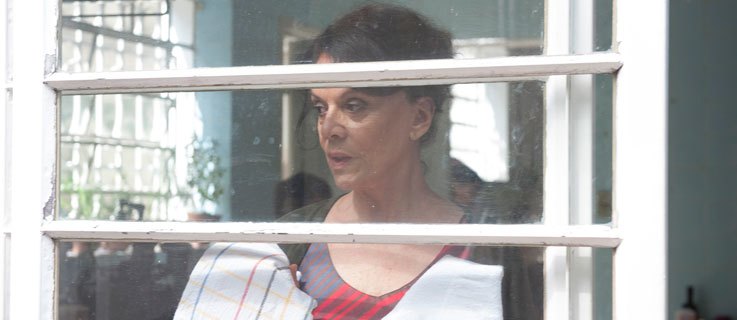The Brazilian films "Como nossos pais" and "Vazante" present two different points of view of the role of women in the 19th century and today.
In the Panorama programme of this year's Berlinale, two female-directed films present the day-to-day lives of Brazilian women and the challenges they face. Vazante, this year's opening film of the Panorama programme, was directed by Daniela Thomas and depicts daily life in 1821, on the Brazilian fazenda (plantation) owned by Antonio. The fazenda is undergoing a transition in activities, from mining to agriculture and raising cattle. After his wife dies in childbirth, Antonio marries his pre-adolescent niece who, in order to become integrated in her new surroundings, becomes involved with the child of one of the slaves from the estate, thus destabilising the ruling social hierarchy. The film highlights the tone and inner workings of a patriarchal society in which men hold absolute power. The black and white cinematography captures the interior landscape of the state of Minas Gerais, and it creates an atmosphere of isolation as the protagonists are cut off from the outside world. Following the exhibition, criticism circulated on social media decrying the absence of Afro-Brazilian actors joining the rest of the cast in Berlin, which would seem to be justified for a film dealing with the legacy of slavery in Brazil.
Just like our parents, meanwhile, takes place in present-day São Paulo. Rosa, an online journalist, finds herself caring for her daughters and maintaining the household in the absence of her husband, an anthropologist who is away conducting research in the Amazon Region. Rosa is also dealing with the relationship she has with her mother, who has been diagnosed with terminal cancer. As a result of the daily stress, Rosa is forced to put her marriage and dreams on hold. "Beyond reading newspapers, magazines and the Internet, my research led me to examine the women in my life. I spoke with neighbours and other women in my surroundings," says Laís Bodanski, director of the feature-length film. One aspect of the film that stands out is the acting of Maria Ribeiro, who plays the role of Rosa, the protagonist.
